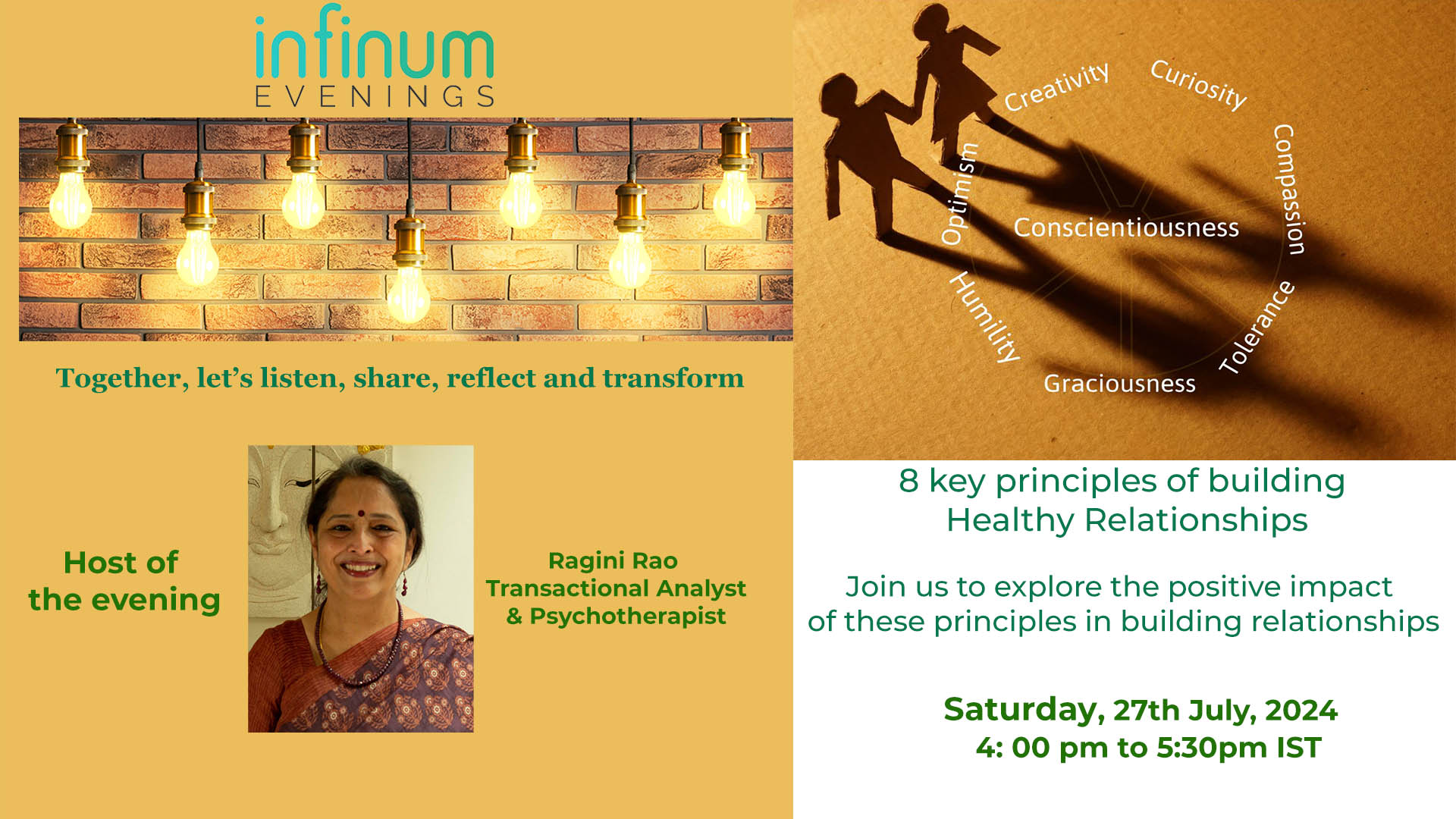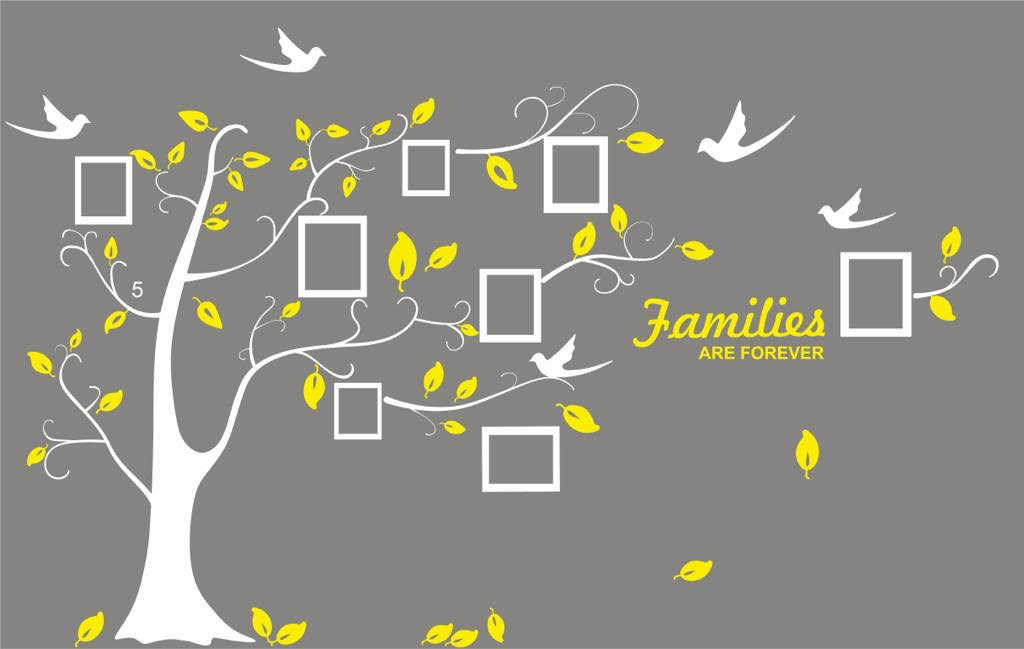Shubhra had been wronged; by the person in whose custody she had given her heart for safekeeping, with complete and no-holds-barred trust. Struck by this lightning, she reeled. With enormous effort, she recovered.
But she could neither forgive nor forget the person or the deed. Troublesome dreams, mental replay of times spent together, promises made and then broken. Thoughts of how she would lash out at him if she met him, continued to haunt.
Then she met him. After years of no contact. Something snapped, releasing her from her own prison of pain, hurt and anger. She talked to him freely, breathed without tautness in her chest and went home to a night of wholesome, restful sleep.
She had set herself free. The situation had not changed. Yet everything had changed for her. She had chosen to unburden herself of anger and resentment and forgive him.
What does Forgiveness mean?
Forgiveness means setting in motion and committing to a personal exercise of change. This is done by freeing oneself of thoughts of revenge, hitting back, wishing the offender bad, punishment, anger, blame, resentment. It means pardoning the person and setting both the receiver and the offender free.
According to Frederic Luskin, a psychologist and the head of the Stanford Forgiveness Project, “The real work is when you’ve been harmed by someone you’re close to and you work through all the conflicting feelings to go to a place of dignity and peace.”(The New York Times -by Bruce Feiler- Sept. 25, 2015)
Forgiveness does not necessarily mean that things go back to a clean slate and there is total reconciliation. We can have forgiveness without reconciliation. It is a bonus if that happens too.
Sometimes even after forgiving, we go back to the earlier feeling of hurt and resentment. We then have to work on forgiving again. It is a process and does not happen magically.
Forgiving with Awareness
If two people have hurt each other, one can take the initiative of forgiving even if the other person takes his or her time reciprocating.
It is possible that the issue is with a person we are not in touch with or who is not alive. Letting go of pent up emotions, asking for or giving forgiveness in our hearts could be a way forward.
Then there are questions like, “Why should I forgive?” Or “Does everything need to be forgiven?” Or “Isn’t it better for our survival in the future to remember what wrong was done to us so that we are not open to hurt again?” There could be other queries and reservations.
This article deals with the subject in a more generic way. However one can say that forgiveness does not mean exposing oneself to future harm by becoming naive and trusting.
Awareness of what has happened – and may happen again – is worth keeping in mind like a lesson learnt. What we are talking about is not letting the anger or resentment make a nest inside us and corrode us.
How does one forgive someone who has wronged you?
- It is not easy but possible. It does not mean forgetting and excusing what happened; but it means not allowing it to strangle our current life.
- It also does not mean becoming close buddies with the person; but it does result in not allowing the sight of the person to irk and agitate us.
- One way is to put oneself in the other person’s shoes, be empathetic and imagine how we would have reacted or behaved under the circumstances. Or, try and understand what made the person behave in that particular manner – without immediate judgement.
- It is easier to do this exercise with the passage of time, when the feelings are not as raw and we are in a calmer frame of mind. It gives a different perspective to the one we were harbouring. It’s like getting an alternate view, of what we had done that elicited a negative reaction.
- We may become more objective about ourselves and ask, “Was I actually that deeply wronged or did I feel wronged?” There is a difference.
- There would be situations when we had hurt someone and were forgiven. It is good to recall this and remember how it felt.The bottom line is to treat oneself and the other with compassion.
Joining a support group or talking to a mentor or counsellor often brings clarity and direction in what we should do.
How does forgiving help?
We no longer simmer in the pot of victimhood, waiting for redemption. We empower ourselves with the ability to tear away from the negative grip the other person has over us.
Forgiving is more about us than the other person. How the other person receives our pardon is not in our control; but it certainly makes us feel better and lighter and more in charge of our own emotions.
If holding grudges makes us feel negative and stressed then the reverse is also true. Letting go of grudges is beneficial for physical, spiritual and mental well being.
“An apology is something one person says to another,” said Pastor Amy. “It’s a one way street.” “Forgiveness is the next stage , when we are actually engaged in the unusual act of reconciliation…….”
The moment of receiving forgiveness, “is this moment of true humanity when we are seen for who we really are and loved anyway,” said Pastor Amy. (The New York Times -by Bruce Feiler- Sept. 25, 2015)
Asking for Forgiveness
Obviously, the question of seeking forgiveness comes up once we have acknowledged and accepted that what we did was wrong. Someone felt wronged and hurt by our action or inaction.
- According to Rabbi Shai Held, a theologian, “You can’t talk about forgiveness without talking about vulnerability. Vulnerability is acknowledging you owe something to someone by admitting that you hurt them.” (The New York Times -by Bruce Feiler- Sept. 25, 2015)
- The next step would be to truly feel remorse and express it to the person concerned. This requires time and introspection. The person feels respected, valued and understood. Whether the person is in a position to forgive is not for us to demand or judge. We simply need to do our bit.
- The initial step is apologising, followed by asking for forgiveness.When we genuinely feel and understand the pain that we have put the person through, the apology and asking for forgiveness has the depth that convinces the person.
- When apologising, this understanding needs to be put in words – “I am sorry for having put you through the trauma of facing the land-sharks all by yourself. I needed to be with you so that you did not feel alone and unsupported. I was scared and chickened out; but that is no excuse for not standing with you. Please forgive me and I want to assure you that in future I will not let you down and be there for you.” Taking responsibility and giving assurance of rectification (our actions must reflect it) usually has a healing effect.
- Be specific in what you are sorry about.
- An interesting exercise of getting children sensitised to the idea of apologising is, for example, asking them, “You took away his ball and he cannot play. How do you think he is feeling? “What do you think you can do now?” Or “If he took away the ball you had got to play with, how would you feel?” “What would you want him to do?”
- We also need to forgive ourselves for what we did. Instead of labelling ourselves as ‘bad’ based on our action or inaction, separate our being and the act. “What I did was wrong.” That does not mean justifying or finding excuses for what we did. We accept what we did was not right, try and see how we can make amends and move on.
- Some of us who find it difficult to verbalise our feelings and are comfortable writing, can gather our thoughts and pen them down.
Finally, if we express our gratitude to the person for apologising to us or for receiving our apology, we can take a step closer to healing ourselves and changing the situation.
Please do leave your comments at the bottom and do share with others if you like this article.

















Excellent read.